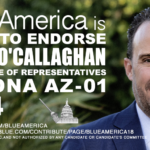On This Week with George Stephanopoulos today, Rep. Barney Frank points out the hypocrisy of Republicans carping about the stimulus package's costs while having unswervingly supported the Iraq War these past eight years, and how it has turned into the biggest black hole for government dollars ever seen:
STEPHANOPOULOS: Do we have a deal here?
DEMINT: Well, the quickest way to -- to get money in the economy is not to take it out in the first place. And it's interesting, as we talk, like buy-American. We all -- we all want to buy American.
But then we have the highest corporate tax rate in the world. We've got a regulatory system that makes us less competitive. So we -- we actually put these people out of work, ship jobs overseas with bad policy, and then we want to put our hand up and stop our imports from coming in.
And this is a government-managed economy which doesn't work. It's inefficient. We obviously have to help people. But the quickest way to get a stimulus is -- is not to be taking so much money out of the economy, for particularly what Fred is -- is saying.
If we could expense -- if companies like FedEx could expense buying an airplane immediately, instead of over a number of years, a lot of companies would make those capital equipment purchases now rather than waiting.
And so it really comes down to a basic argument: Do you want a government-directed plan or do you want the free markets to work?
FRANK: Well, yes, I do want -- I want highways. I want better medical care for people laid off. This notion -- and the one thing I would most disagree with is you say we overregulated. It was the complete absence of regulation in the financial area that led to the crisis we're in today.
DEMINT: It was bad policy.
FRANK: Jim, can I please?
DEMINT: OK, sure.
FRANK: The policy was, yes, to put no restrictions on people outside the banking system who are extending themselves in the financial area into instruments which they couldn't back up. It was even within the banking system, letting people go with things that were off the balance sheet.
The complete absence of regulation in the financial area has, I think, been a disaster. And I think we're back to where we were when Theodore Roosevelt and Woodrow Wilson stepped in or Franklin Roosevelt.
But beyond that, the notion that everything is solved by a tax cut, of course there are sensible tax policies you could have. But there are public needs we have in this society...
DEMINT: Sure.
FRANK: ... that cannot be accomplished by a tax cut. No tax cut builds a road. No tax cut puts a cop on the street. No tax cut educates a child in -- in the way that it ought to be done.
So this -- only tax cuts, at a time when I think we have a deficiency in some areas that are important for the quality of our life is a big disagreement.
DEMINT: But, George, we -- we have programs. I mean, we're reauthorizing our highway bill this year.
FRANK: At too low a level.
DEMINT: And -- well -- well, let's talk about making it a higher level, but let's don't say it's a stimulus when it's a government spending plan. And all of these things, the needs in our society, education, these are things we debate every year.
FRANK: Spending can be stimulus. I don't understand what you think stimulus is.
(CROSSTALK)
DEMINT: But this is the largest spending bill in history, and we're trying to call it a stimulus when it's just doing the things that...
FRANK: Well, let me tell you what I think is the largest...
DEMINT: ... you wanted to do anyway.
FRANK: The largest spending bill in history is going to turn out to be the war in Iraq. And one of the things, if we're going to talk about spending, I don't -- I have a problem when we leave out that extraordinarily expensive, damaging war in Iraq, which has caused much more harm than good, in my judgment.
And I don't understand why, from some of my conservative friends, building a road, building a school, helping somebody get health care, that's -- that's wasteful spending, but that war in Iraq, which is going to cost us over $1 trillion before we're through -- yes, I wish we hadn't have done that. We'd have been in a lot better shape fiscally.
STEPHANOPOULOS: That is a whole another show, so I'm going to...
(CROSSTALK)
FRANK: That's the problem. The problem is that we look at spending and say, "Oh, don't spend on highways. Don't spend on health care. But let's build Cold War weapons to defeat the Soviet Union when we don't need them. Let's have hundreds and hundreds of billions of dollars going to the military without a check." Unless everything's on the table, then you're going to have a disproportionate hit in some places.















